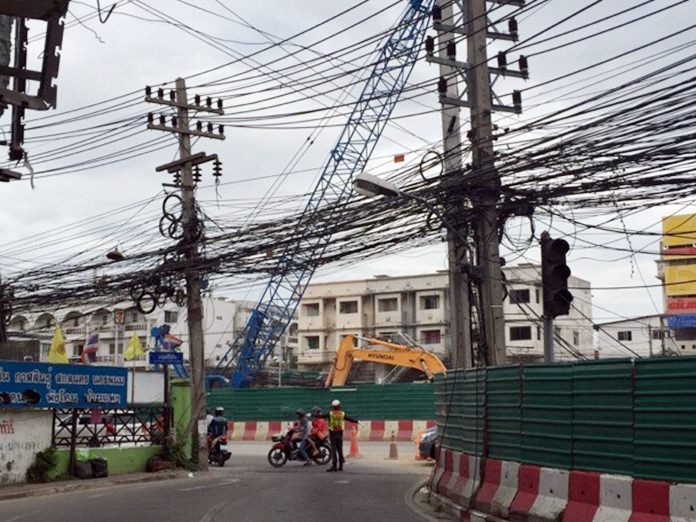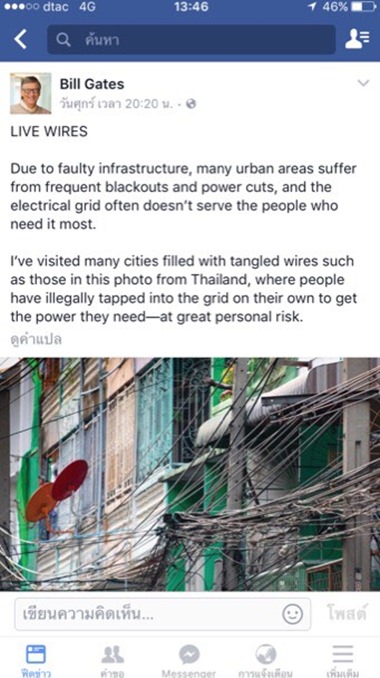A glaring spotlight shined on Pattaya’s slow work to remove messy tangles of electrical and utility wires across the city when Microsoft Co. founder Bill Gates tweeted a photo illustrating the kingdom’s haphazard power system.
Gates’ social media team quickly removed the post, but the furor it generated in Thailand was enough to prompt the government to act on 51.7-billion-baht program to put 127 kilometers of overhead power lines and cables underground.

Former Pattaya City Councilman Banlue Kullavanijaya for years spearheaded efforts to move overhead lines underground, forcing the Provincial Electrical Authority, TOT Plc, cable television and internet companies to join him at well-publicized events to pull down their cables.

But Banlue is now out of office after being replaced by military-appointed legislators after the city council’s term expired June 16. The Interior Ministry appointees now running the city and the PEA now say they have no firm plans to do anything about the wiring for the foreseeable future.
Prime Minister Prayut Chan-o-cha, however, last month urged all state agencies to speed up the first phase of the wire-relocation plan to serve his digital-economy initiative.
In Bangkok, Samut Prakan and Nonthaburi, the grouping of all overhead power, telecommunications and broadcasting cables into a single platform below ground is scheduled to be completed in 2020, five years ahead of schedule.
TOT, meanwhile, will be responsible for building a 3-billion-baht underground system to house existing telecom and broadcasting cables.
The National Broadcasting and Telecommunications Commission said it will order all current telecom and broadcasting licensees to remove their cables and lay them alongside power lines underground.
When, or if, those efforts will extend to Pattaya is unknown. For now, residents will have to deal with leaning poles – particularly the overloaded poles near the Sukhumvit-Central Road intersection – and drooping lines and hope they don’t fall on someone, as one did earlier this year.




